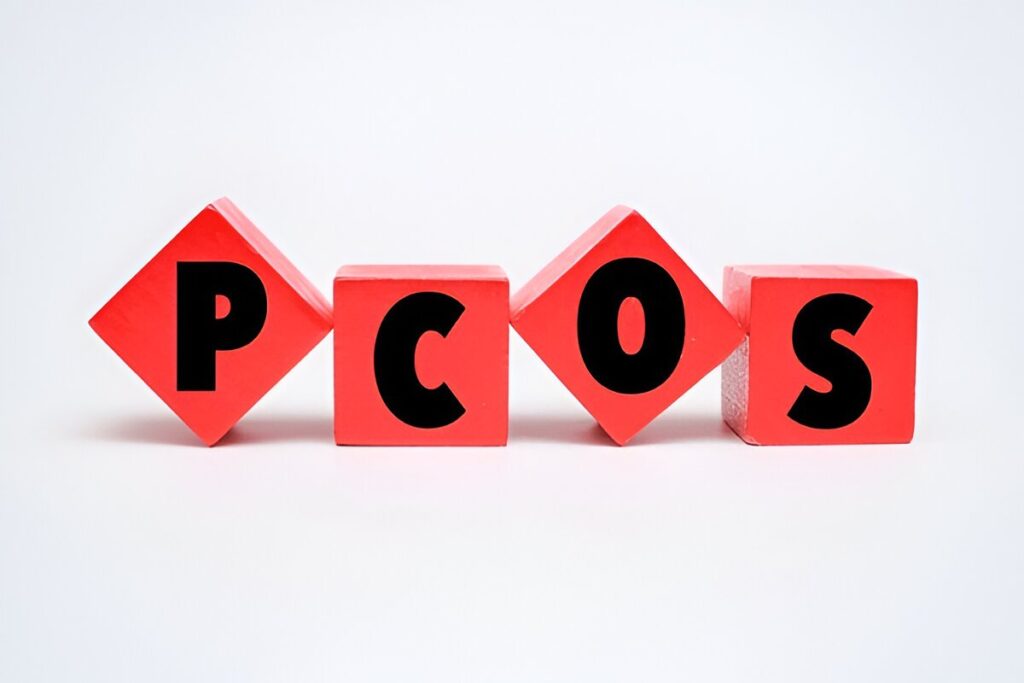
Supplements for PCOS
Polycystic Ovary Syndrome (PCOS) is one of the most common hormonal disorders affecting women of reproductive age.
It impacts up to 1 in 10 women globally and is a significant cause of infertility, hormonal imbalance, and various metabolic complications.
Understanding what PCOS is, how it disrupts hormone balance, and what interventions like supplements for women’s hormone health can offer is essential for anyone dealing with or wanting to learn more about this condition.
What is PCOS?
PCOS stands for Polycystic Ovary Syndrome, a condition that affects a woman’s ovaries—the reproductive organs that produce estrogen and progesterone, which regulate the menstrual cycle.
In PCOS, the ovaries may develop numerous small collections of fluid (follicles) and fail to regularly release eggs.
The name “polycystic” can be misleading because not everyone with PCOS has ovarian cysts.
Rather, it refers to the presence of multiple immature ovarian follicles. PCOS is primarily an endocrine system disorder that involves elevated levels of androgens (male hormones), insulin resistance, and irregular or absent menstrual cycles.
Cause and Symptoms of PCOS
The exact cause of PCOS remains unknown, but several factors are believed to play a role:
- Genetics: PCOS tends to run in families. A woman is more likely to develop it if her mother or sister has it.
- Insulin Resistance: Many women with PCOS have insulin resistance, which leads the body to produce more insulin. High insulin levels can increase androgen production, which interferes with the ovaries’ ability to ovulate.
- Hormonal Imbalance: Women with PCOS often produce higher-than-normal levels of androgens, leading to many of the disorder’s symptoms.
Common Symptoms of PCOS include:
- Irregular periods or no periods at all
- Excess facial or body hair (hirsutism)
- Severe acne or oily skin
- Weight gain or difficulty losing weight
- Thinning hair or hair loss on the scalp
- Difficulty getting pregnant due to irregular ovulation
- Darkening of the skin, particularly along neck creases, groin, or underneath breasts
- Skin tags in the armpits or neck area
Symptoms can vary from person to person, and not every woman with PCOS will experience all of them.
Also Read: Recognizing the Symptoms of PMDD
How PCOS Affects Hormone Balance
PCOS disrupts the balance of reproductive hormones. Normally, the ovaries release a mature egg during the menstrual cycle. With PCOS, the hormonal imbalance prevents ovulation, leading to irregular menstrual cycles.
The primary hormonal imbalances in PCOS include:
- Increased Androgens: Often called “male hormones,” androgens are present in all women in small amounts. In PCOS, excess androgen production leads to symptoms like acne, hirsutism, and scalp hair thinning.
- Insulin Resistance: Insulin is a hormone that helps the body use glucose for energy. Many women with PCOS are resistant to insulin, causing the pancreas to produce more. High insulin levels stimulate the ovaries to produce more androgens.
- Imbalanced Estrogen and Progesterone: Due to irregular ovulation, the levels of estrogen and progesterone can be off, leading to missed periods and uterine lining build-up.
The hormonal imbalance can affect physical health, fertility, emotional well-being, and increase the risk of long-term conditions like type 2 diabetes, heart disease, and endometrial cancer.
Managing PCOS: Diet, Lifestyle, and Supplements
Managing PCOS typically involves a combination of lifestyle changes, medical treatments, and nutritional support. Regular exercise, a balanced diet, and weight management are crucial in reducing insulin resistance and balancing hormones.
Supplements for PCOS
In addition to lifestyle changes, many women turn to Supplements for PCOS to help manage symptoms and support hormone regulation. Here are some of the most commonly used:
- Inositol (Myo-inositol and D-chiro-inositol): Helps improve insulin sensitivity and support ovulation.
- Vitamin D: Many women with PCOS have a deficiency. Vitamin D helps regulate menstrual cycles and supports metabolic health.
- Omega-3 Fatty Acids: Found in fish oil, omega-3s may reduce inflammation and androgen levels.
- Magnesium: Supports insulin regulation and may help improve mood and reduce symptoms of anxiety.
- Zinc: Plays a role in hormonal function and may help reduce acne and excessive hair growth.
Also Read: Top Supplements for Women’s Hormonal Health
When considering Supplements for Women’s Hormone Health, it’s important to choose quality products and consult a healthcare professional. Hormonal balance is delicate, and taking the wrong supplement or dosage can lead to further imbalance.
Importance of Supplements for Women’s Hormone Health
Women’s hormone health is complex and can be influenced by stress, diet, environmental toxins, and underlying medical conditions like PCOS. Supplements for Women’s Hormone Health can help:
- Restore hormonal equilibrium
- Improve menstrual regularity
- Enhance fertility
- Reduce PMS and PCOS symptoms
- Support mood and energy levels
Adaptogenic herbs like ashwagandha, chasteberry (vitex), and maca root are also popular in natural hormone support for women. These herbs help regulate the hypothalamic-pituitary-ovarian (HPO) axis, the hormonal system that controls reproduction.
When to Seek Medical Advice
If you suspect you have PCOS or experience symptoms such as irregular periods, unusual hair growth, or trouble conceiving, it’s important to consult a gynecologist or endocrinologist. Early diagnosis and intervention can prevent complications and improve quality of life.
A doctor may recommend:
- Blood tests to check hormone levels
- Ultrasound to assess the ovaries
- Medications such as birth control pills to regulate periods
- Insulin-sensitizing agents like metformin
- Fertility treatments if you’re trying to conceive
Final Thoughts
PCOS is a challenging yet manageable condition that affects many aspects of a woman’s health.
Understanding the cause and symptoms of PCOS, how it disrupts hormonal harmony, and the role of Supplements for PCOS and Supplements for Women’s Hormone Health can empower women to take control of their health.
Whether through diet, exercise, medical intervention, or natural supplementation, there are effective ways to manage PCOS and support overall hormonal balance.
Always remember that each woman’s body is unique. A personalized, holistic approach that considers your lifestyle, symptoms, and health goals is the most effective path to managing PCOS and thriving despite it.





